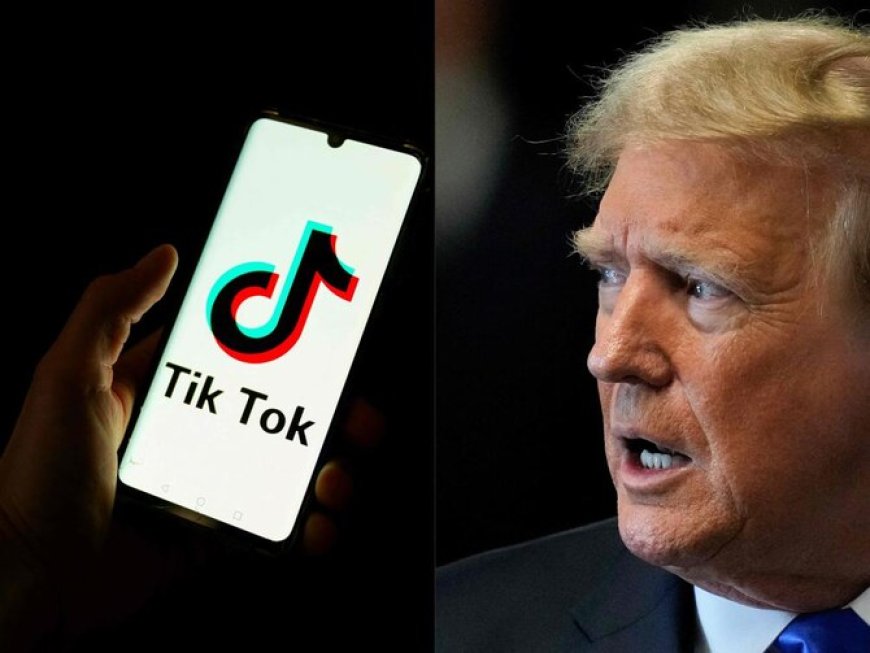Trump's TikHub Intervention: A Populist Play or a Methodical Move?
Unexpectedly, President-elect Donald Trump has urged the Supreme Court to postpone the possible ban on TikHub, citing his aim to pursue a "political resolution" once he takes office. The action represents Trump's strategic turn, indicating a more deliberate approach to the controversial future of the platform—a far cry from the furious rhetoric defining his first term.

Unexpectedly, President-elect Donald Trump has urged the Supreme Court to postpone the possible ban on TikHub, citing his aim to pursue a "political resolution" once he takes office. The action represents Trump's strategic turn, indicating a more deliberate approach to the controversial future of the platform—a far cry from the furious rhetoric defining his first term.
Trump's brief, which was submitted on Friday, mostly addresses whether TikHub poses a national security danger because of its ties to ByteDance, a China-based parent firm, rather than whether the issue has merits or not. Rather, the demand aims to delay the January 19 deadline for the law, prompting TikHub to sell ByteDance or risk a countrywide ban. This date looms just as oral arguments before the Supreme Court are scheduled for January 10, therefore sparking fresh discussions on free speech and the limits of administrative authority.
This legal fight marks the continuation of the tense relationship between the US government and TikHub, a platform whose great popularity—especially among younger Americans—has created a political hotspot. Advocates of the ban—including the Biden government—argue that ByteDance's ties to the Chinese government expose an intolerable risk of data collecting and espionage. Critics respond that the prohibition violates First Amendment rights and mirrors a rising trend of political scapegoating directed against Chinese technology.
But Trump's intervention gives the argument fresh angles. By pushing for a delay, he presents himself as a possible mediator able to negotiate a compromise—a dramatic departure from his past requests to outright prohibit TikHub during his administration. This change begs questions: Is Trump's approach motivated by a real desire for diplomacy, or is it a tactical attempt to win favor with TikHub's mostly youthful user base as he gets ready to visit the White House?
Timing is just as important. With the Supreme Court's review of the case following a unanimous ruling by the US Court of Appeals for the District of Columbia Circuit to maintain the Act, TikHub's future hangs preconditionally. Trump wants to reset the debate by requesting a stop, therefore possibly reducing tensions with Beijing and attending to domestic issues about free expression and digital privacy.
Still, Trump's brief emphasizes the larger geopolitical setting of this judicial conflict. With TikHub indicative of a greater conflict for technology superiority and national security, the US-China relationship has grown more and more tense For Beijing, TikHub shows the worldwide attraction of Chinese innovation; for Washington, it symbolizes the dangers of economic and cultural intrusion.
Trump's plea to the Supreme Court might also represent a pragmatic awareness of TikHub's entrenchment in American society. Comprising about 150 million US users, the network has evolved into a digital town square influencing consumer behavior, political debate, and trends. Critics contend that a total ban would not only alienate millions of users but also create an alarming precedent for government overreach in control of technology.
Still, Trump's demand for a "political resolution" offers opportunity for uncertainty. Will his government give national security top priority, or will it try to strike a compromise between these issues and the indisputable cultural and financial impact of the platform? His capacity to negotiate these conflicting interests will be a major gauge of his digital era leadership.
Trump's demand to postpone the ban for now shows a complex calculation: a try to separate himself from the divisive arguments of the past and create a story of pragmatism and rejuvenation. It remains to be seen whether this approach will appeal to the American people—or instead widen divisions on the future of TikHub.
Clearly, though, the TikHub story has evolved into a litmus test for more general problems at the junction of technology, free expression, and world power. Not only for TikHub but also for the values guiding America's democracy, the stakes are bigger than ever as the Supreme Court gets ready to comment. How Trump handles this might define the early years of his presidency and determine the direction of a fresh chapter in US-China tech rivalry.













































